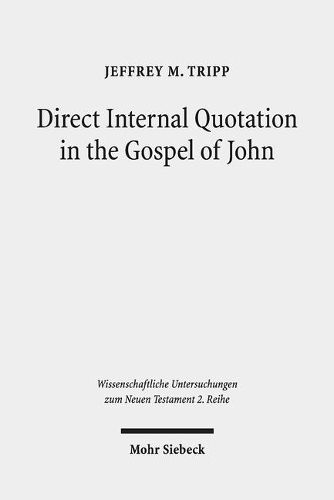Readings Newsletter
Become a Readings Member to make your shopping experience even easier.
Sign in or sign up for free!
You’re not far away from qualifying for FREE standard shipping within Australia
You’ve qualified for FREE standard shipping within Australia
The cart is loading…






Characters in the Gospel of John quote and re-quote each other frequently, almost excessively, yet their quotations are rarely literal. These characters (including Jesus and the narrator) make changes - some minor, some major - even when they re-quote important sayings of Jesus. Jeffrey M. Tripp examines this often overlooked feature of the Fourth Gospel in the contexts of first century pedagogy and literature, as well as early Christian tradition and practices. Attending to John’s direct internal quotations reveals a text at play with its christological and eschatological language, teasing out the fullest extent of its meaning. The Gospel of John emerges as a theological narrative anchored in yet unbound by the ideas of the wider early Christian movement.
$9.00 standard shipping within Australia
FREE standard shipping within Australia for orders over $100.00
Express & International shipping calculated at checkout
Characters in the Gospel of John quote and re-quote each other frequently, almost excessively, yet their quotations are rarely literal. These characters (including Jesus and the narrator) make changes - some minor, some major - even when they re-quote important sayings of Jesus. Jeffrey M. Tripp examines this often overlooked feature of the Fourth Gospel in the contexts of first century pedagogy and literature, as well as early Christian tradition and practices. Attending to John’s direct internal quotations reveals a text at play with its christological and eschatological language, teasing out the fullest extent of its meaning. The Gospel of John emerges as a theological narrative anchored in yet unbound by the ideas of the wider early Christian movement.